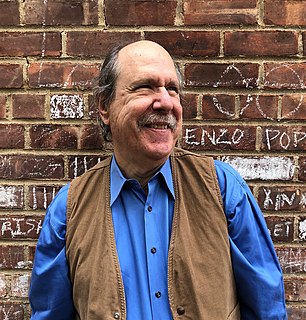A Quote by Edward Witten
As for the forces, electromagnetism and gravity we experience in everyday life. But the weak and strong forces are beyond our ordinary experience. So in physics, lots of the basic building blocks take 20th- or perhaps 21st-century equipment to explore.
Related Quotes
Superstring theories provide a framework in which the force of gravity may be united with the other three forces in nature: the weak, electromagnetic and strong forces. Recent progress has shown that the most promising superstring theories follow from a single theory. For the last generation, physicists have studied five string theories and one close cousin. Recently it has become clear that these five or six theories are different limiting cases of one theory which, though still scarcely understood, is the candidate for superunification of the forces of nature.
The myth of self-sufficiency blinds us to the workings of other forces in family life. For families are not now, nor were they ever, the self-sufficient building blocks of society, exclusively responsible, praiseworthy, and blamable for their own destiny. They are deeply influenced by broad social and economic forces over which they have little control.
In the 20th century, we built a lot of walls - we endlessly tried to build walls between us and people we perceived, correctly or incorrect, as our enemies. In the 21st century, because of the advent of networks, the free movement of goods and people across the globe, we need to build security by building bridges instead of building walls.
The different American experience of the 20th Century is crucial because the lesson of the century for Europe, which essentially is that the human condition is tragic, led it to have a build a welfare system and a set of laws and social arrangements that are more prophylactic than idealistic. It's not about building perfect futures; it's about preventing terrible pasts. I think that is something that Europeans in the second half of the 20th century knew in their bones and Americans never did, and it's one of the big differences between the two Western cultures.
I have begun to feel that there is a tendency in 20th Century science to forget that there will be a 21st Century science, and indeed a 30th Century science, from which vantage points our knowledge of the universe may appear quite different than it does to us. We suffer, perhaps, from temporal provincialism, a form of arrogance that has always irritated posterity.
I think the Bhagavad Gita is about both the forces of light and the forces of darkness that exist within our own self, within our own soul; that our deepest nature is one of ambiguity. We have evolutionary forces there - forces of creativity, and love, and compassion, and understanding. But we also have darkness inside us - the diabolical forces of separation, fear and delusion. And in most of our lives, there is a battle going on within ourselves.
I firmly believe that we who are alive and can think today-in the closing years of the 20th century-have a commitment to our species to make sure that the flicker of movement we have thus managed in space stays sufficiently kindled so that the people of the 21st century can build upon and extend the human abode from Earth to the cosmos beyond.
The pace of science forces the pace of technique. Theoretical physics forces atomic energy on us; the successful production of the fission bomb forces upon us the manufacture of the hydrogen bomb. We do not choose our problems, we do not choose our products; we are pushed, we are forced -- by what? By a system which has no purpose and goal transcending it, and which makes man its appendix.
Our design, not respecting arts, but philosophy, and our subject, not manual, but natural powers, we consider chiefly those things which relate to gravity, levity, elastic force, the resistance of fluids, and the like forces, whether attractive or impulsive; and therefore we offer this work as mathematical principles of philosophy; for all the difficulty of philosophy seems to consist in this from the phenomena of motions to investigate the forces of nature, and then from these forces to demonstrate the other phenomena.





































